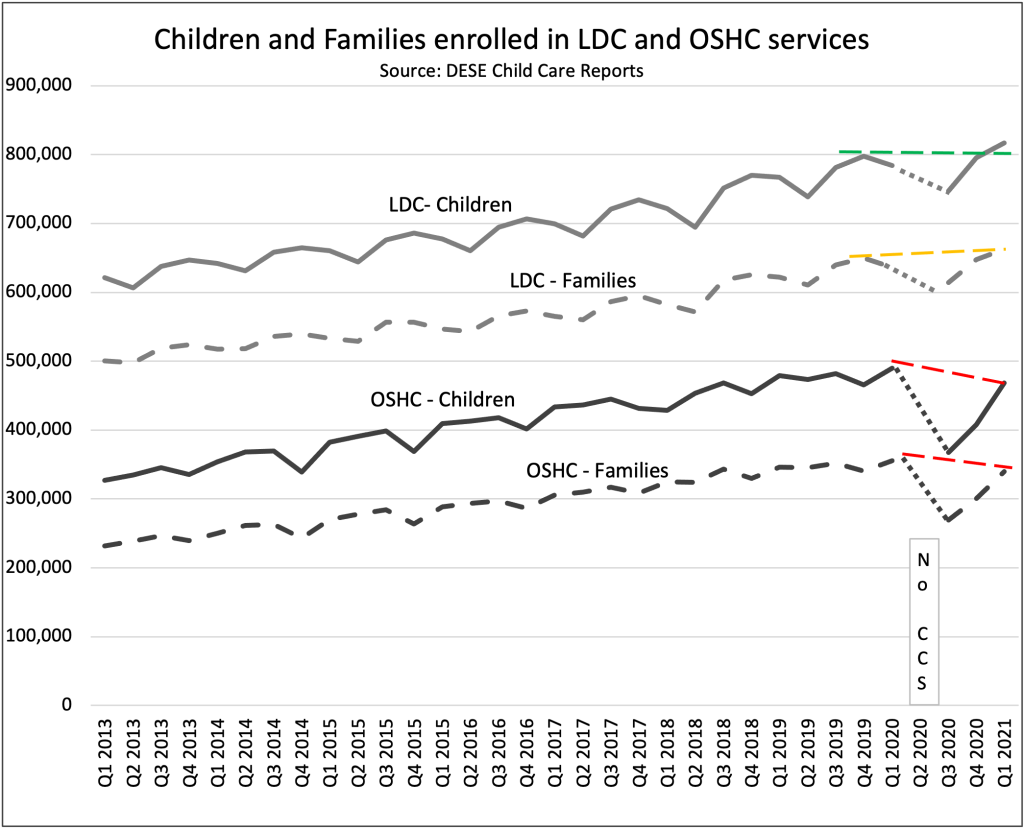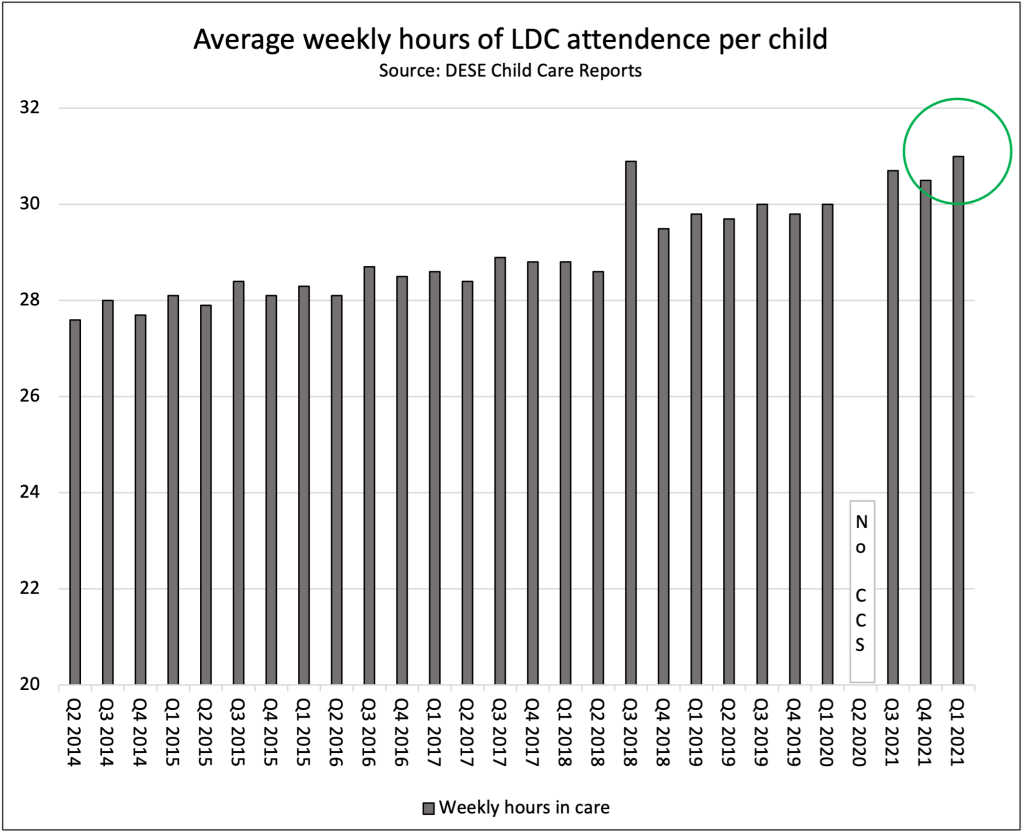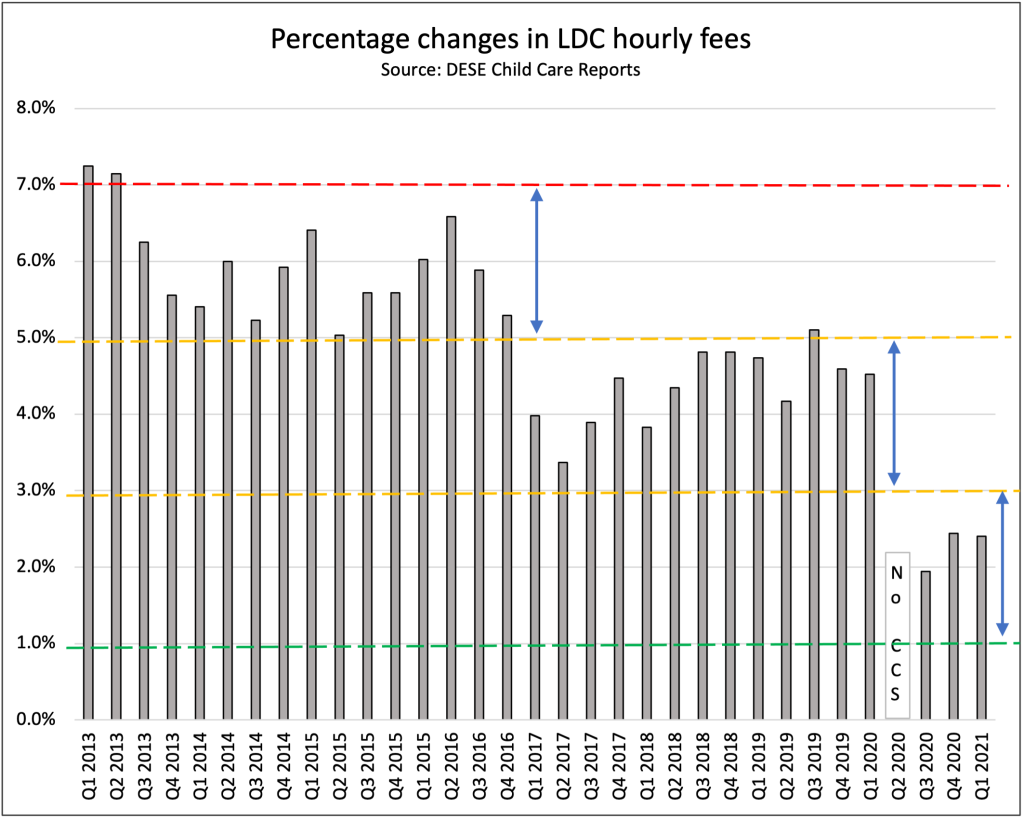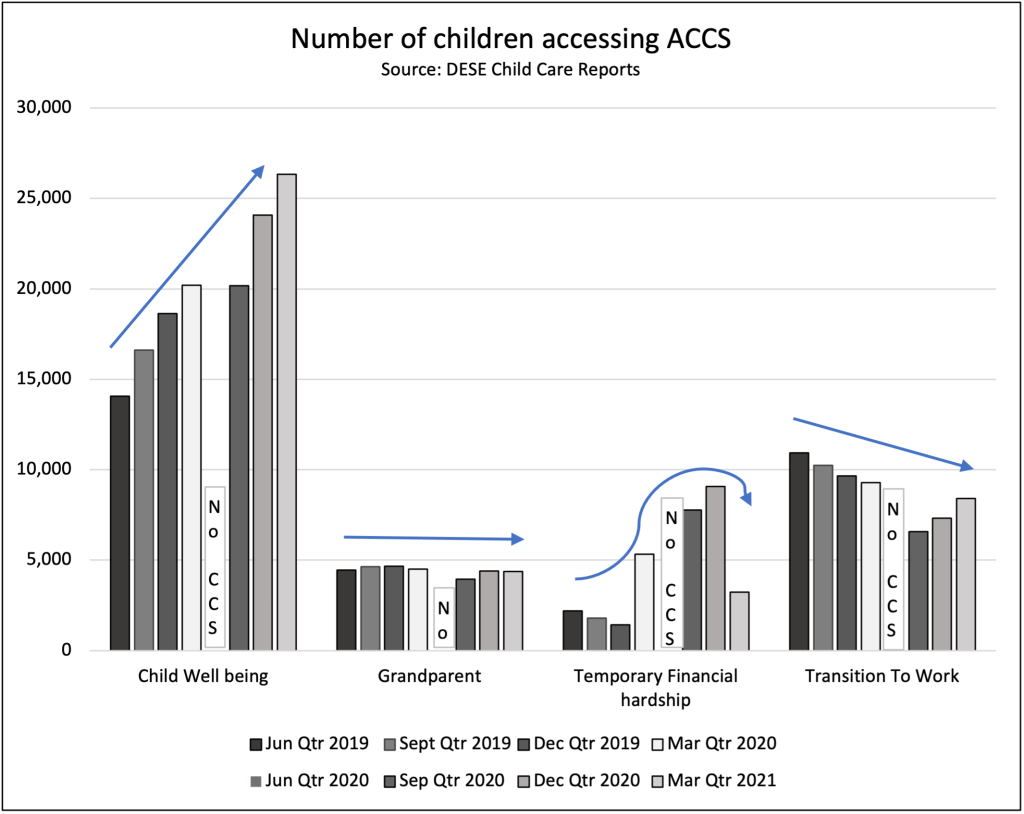Demand for LDC jumps to new high in Q1 2021 with fee increases subdued says latest DESE report

The total number of children attending long day care (LDC) services in the three months ended March 2021 has topped 800,000 for the first time as demand bounced back strongly post a COVID-19 stricken 2020 according to the latest release of the Department of Education, Skills and Employment’s (DESE) Child Care in Australia report.
A total of 816,880 children attended an LDC service in the quarter, 4.2 per cent higher than the same period in 2020 and 6.5 per cent higher than in 2019- broadly similar to the supply growth highlighted in ACECQA snapshots for the same period.
Although enrolments are likely to stall, or even reverse in Q2 and Q3 2021 due to rolling lockdowns across Australia, the jump in enrolments in the first quarter signals that demand for early childhood education and care (ECEC) services remains robust in a non COVID impacted operating environment, a positive development for operators and owners alike.

That being said, the strong performance in LDC was not replicated in the outside school hours care (OSHC) subset of the ECEC sector, with attendance levels continuing to lag below the high experienced in the last quarter of 2019 just before the COVID-19 pandemic commenced.
Strong LDC enrolment growth coupled with record weekly hours of attendance
As well as the total enrolments in the period touching new high levels the average weekly hourly attendance of each child managed to top the high levels seen just after the implementation of the new Child Care Subsidy (CCS) legislation in Q3 2018.
On average children attended 31.0 hours of LDC education and care in Q1 2021, an increase of 3.3 per cent on the same period in the previous year and 0.1 hours more than in Q3 2018.

As noted above Q2 and Q3 2021 is likely to see these strong gains eroded due to lockdowns and associated COVID-19 state and territory measures but the fact that such demand exists within the system should be considered a positive.
OSHC settings also saw a new record posted with the average child now attending for 13.4 hours per week, although as noted above overall OSHC numbers remain well below those recorded pre pandemic.
Fee increases remain subdued despite strong demand in period
Fees at LDC centres increased just 2.4 per cent per hour in the first quarter, the third such consecutive increase since the CCS system was suspended in Q2 2020 and well below the 3.0 per cent to 5.0 per cent range which began to develop in the quarters leading up to the CCS implementation and afterwards.

Historically, sustained increases below 3.0 per cent in the ECEC space are the exception and not the norm, especially given the strong demand backdrop that materialised across the quarter and would suggest that owner / operators remained relatively cautious with regards fee reviews instead preferring to focus on driving occupancy as a primary objective.
Looking ahead it remains to be seen whether this range persists across 2021 and into 2022 or whether a reversion to previous 3.0 per cent to 5.0 per cent increases returns.
Additional Child Care Subsidy (ACCS) sees wellbeing surge
The overall number of children accessing Additional Child Care Subsidy (ACCS) fell in the quarter to 41,730 driven largely by a large drop in temporary financial hardship cases which fell 64 per cent to 3,230.
That being said, Child Wellbeing continued to trend higher with a jump of 9.3 per cent in the same period last year to a new record of 26,340 children receiving the subsidy in Q1 2021.

Another area that saw substantial growth year on year was the number of indigenous children using child care with an increase of 9.3 per cent on Q1 2020 in total across LDC, OSHC and FDC with LDC being the standout recording a 10.6 per cent increase in enrolments to 36,160 children.
To access the latest DESE report and data tables please click here
Popular

Policy
Practice
Provider
Quality
Spot checks, CCTV and scrutiny of Working With Children Checks: sector responds to child safety crisis
2025-07-07 07:15:26
by Fiona Alston

Quality
Practice
Provider
Research
Workforce
Honouring the quiet magic of early childhood
2025-07-11 09:15:00
by Fiona Alston

Practice
Provider
Quality
Research
Workforce
Embedding cultural safety and responsiveness to strengthen belonging in early childhood education
2025-07-14 13:21:23
by Contributed Content













